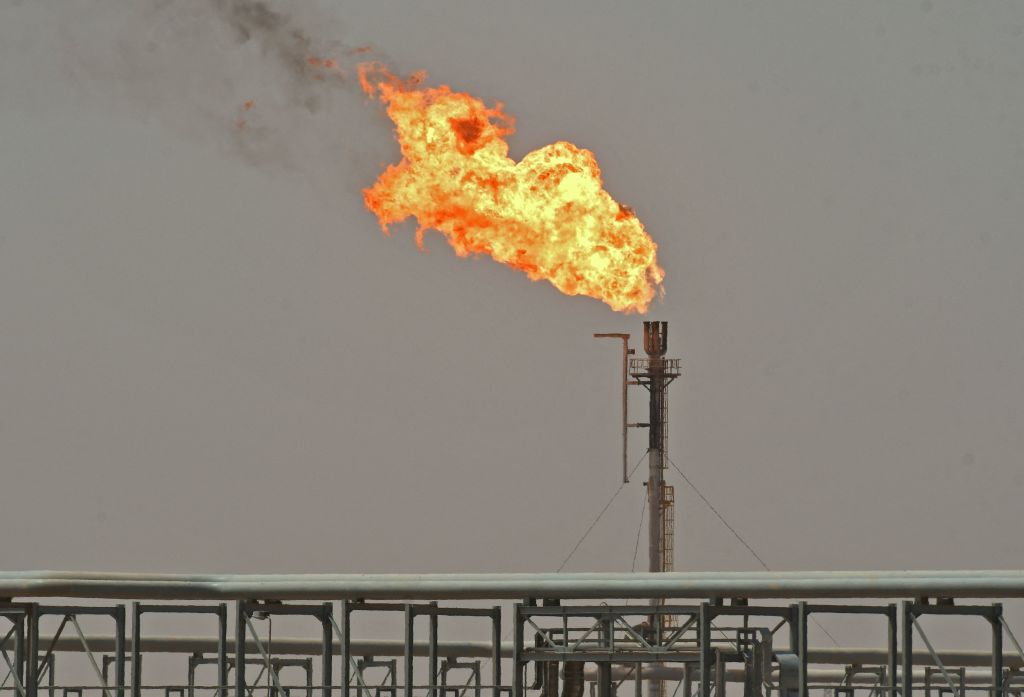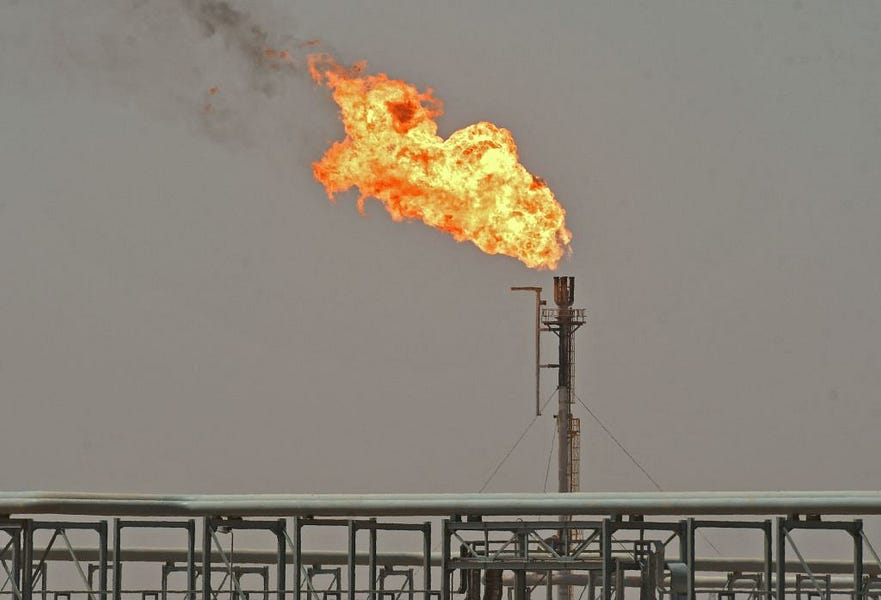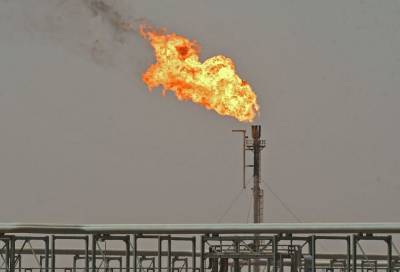Happy Monday! Barring poor weather conditions, NASA is launching a rocket to the Moon this morning! It’s an unmanned rocket, but Artemis I will theoretically be the first of many missions to “build a long-term human presence at the Moon for decades to come.”
Tune in here around 8:30 a.m. ET for liftoff.
Quick Hits: Today’s Top Stories
The Justice Department on Friday released a heavily redacted version of the affidavit used to justify the search of Donald Trump’s Mar-a-Lago estate earlier this month. According to the document, the National Archives and Record Administration had recovered 184 documents with classification markings from Mar-a-Lago earlier in the year, including 67 marked “confidential,” 92 marked “secret,” and 25 marked “top secret.” But the affidavit alleged the government had probable cause to believe additional classified documents would be found on the premises, and that evidence of obstruction would be as well.
The Federal Reserve’s preferred measure of inflation, the personal consumption expenditures (PCE) price index, increased 6.3 percent year-over-year in July, the Bureau of Economic Analysis reported Friday—down from a 6.8 percent annual rate in June. Despite the additional data showing the pace of inflation may be slowing, Fed Chair Jerome Powell reiterated over the weekend that the central bank plans to continue aggressively hiking interest rates. “While higher interest rates, slower growth, and softer labor market conditions will bring down inflation, they will also bring some pain to households and businesses,” he said at an economic symposium in Jackson Hole, Wyoming. “These are the unfortunate costs of reducing inflation. But a failure to restore price stability would mean far greater pain.”
The United Kingdom’s Office of Gas and Electricity Markets (OFGEM) announced Friday that—due to Russia’s dwindling supply of energy to Europe—it will nearly double the annual price cap on a typical household’s electricity and gas bills beginning in October, from about £1,970 ($2,300) to £3,550 ($4,150). The cap—an effort to protect British consumers from profiteering—is expected to rise even further in January.
The U.S. 7th Fleet announced over the weekend that two naval warships—the USS Antietam and USS Chancellorsville—sailed through the Taiwan Strait on Sunday, demonstrating the United States’ “commitment to a free and open Indo-Pacific.” It was the first such passage since House Speaker Nancy Pelosi’s highly publicized trip to Taiwan earlier this month, and a Chinese military spokesman said troops were on “high alert” over the weekend and “ready to foil any provocation.”
The California Air Resources Board issued a rule on Thursday that will gradually ramp up the percentage of new vehicles sold in the state that must be zero-emission, from 35 percent in 2026 to 100 percent in 2035. The regulation faces both legal and practical hurdles, but it’s supported by multiple auto manufacturers—including General Motors—as the industry shifts away from internal-combustion vehicles to electric ones. Several states are expected to adopt a similar policy.
The Secret Service announced Friday it had recovered approximately $286 million in fraudulently obtained Economic Injury Disaster Loans and returned the funds—meant to support companies during the early days of the pandemic—to the Small Business Administration. The agency said it has aided in the return of approximately $2.3 billion in stolen COVID-19 relief over the last 30 months.
More than 30 people were killed in Tripoli over the weekend—and nearly 160 more injured—as violent clashes between rival militias erupted in the Libyan capital. The country’s provisional government said the fighting was triggered by a military group “firing randomly at a convoy” passing through the city.
OPEC Leaders Fire a Warning Shot

Who’s a guy gotta fist bump to get the oil flowing around here?
When President Joe Biden visited Saudi Arabia in July—despite pledging during the 2020 campaign he’d make the kingdom an “international pariah” for its human rights abuses, including the murder of journalist Jamal Khashoggi—he bent his administration’s self-imposed COVID-19 protocols to exchange a fist bump with Crown Prince Mohammed bin Salman. Biden emphasized other foreign policy goals throughout his Middle East trip, but his reason for being in Jeddah was clear: Perhaps mending fences with one of the world’s foremost oil producers could help lower record-high gas prices at home.
But if Biden’s intention was to push Saudi Arabia and the Organization of Petroleum Exporting Countries to boost their output, it appears he was unsuccessful. OPEC announced a marginal increase in production in early August that was much smaller than the U.S. had hoped, and with global oil prices creeping down, the cartel’s leaders are signaling the West shouldn’t even expect a repeat next month—despite European countries bracing for fuel shortages this winter.
OPEC—a group of mostly Middle Eastern and African nations that together account for about 40 percent of global oil production—has finally restored its output to pre-pandemic levels. Of its 13 members, only Saudi Arabia and the United Arab Emirates have capacity to increase production, and it’s not clear by how much. Saudi Arabia has said it could top 12 million barrels a day, but is already targeting 11 million b/d in August—a level it’s hit only twice in its history. The UAE claims it can reach 4 million b/d, but its current 3.17 million b/d are also near record highs.
Although an increase in production would be ideal from Europe and the United States’ perspective, the West is really counting on the cartel to at least hold its output steady. But with “extreme volatility” undermining the oil market’s efficient price discovery mechanism, OPEC heavyweights are signaling they may take Door No. 3. Saudi Arabia is the cartel’s de facto leader, and last Monday, Saudi Energy Minister Prince Abdulaziz bin Salman told Bloomberg that OPEC and its partners could consider “cutting production at any time.”
He wasn’t shooting from the hip. “[bin Salman is] a man who knows the impact of his words,” said Ben Cahill, senior fellow at the Center for Strategic and International Studies’ Energy Security and Climate Change Program. “I see it as a bit of a warning shot.”
The message seems coordinated. Other OPEC countries—Iraq, Kuwait, Venezuela, and more—chimed in with their own willingness to consider production cuts. Bruno Jean-Richard Itoua, OPEC’s current president, told the Wall Street Journal last week that reducing production to curb price volatility was “in line with our views and objectives.”
Generally speaking, OPEC’s “views and objectives” are to coordinate production to maximize profit without driving prices too high and destroying demand for oil or its power in the global market. Signaling less supply is generally a great way to boost prices in the short term, and the axiom held true here: bin Salman’s comments pushed Brent crude futures back over $100 a barrel on Friday. With Europe increasingly swearing off Russian fuel—and Russia increasingly swearing off the European energy market—OPEC looks poised for more profits.
But its leaders’ wariness also reflects some legitimate downside risks in the current oil market, with China and most of the West teetering on the edge of a global recession that could dampen overall demand. Some of that demand destruction is intentional: Federal Reserve Chair Jerome Powell pledged Friday the U.S. central bank would continue raising interest rates “for some time” to combat inflation, and predicted the policy would “bring some pain to households and businesses.”
Changing oil output levels isn’t as easy as opening and closing a spigot, so OPEC countries—like U.S. oil companies—are hesitant to invest in production capacity they later may not need. Will European countries band together to cap how much they pay for Russian energy, limiting the Kremlin’s profits while keeping its energy on the market? Could Russia and Ukraine reach a ceasefire in the coming months? Both developments would theoretically soften demand for OPEC oil. And in the medium-to-long term, OPEC countries are well aware of the West’s push to dump fossil fuels.
Another, more immediate question for producers: The U.S. is reportedly nearing a nuclear deal with Iran that would put Iranian oil back on the market. “No one really knows exactly how fast Iran can ramp up production. Most people seem to believe 500,000 barrels a day to a million barrels a day is achievable within nine to 12 months,” Cahill said, noting that’s significant in a world that uses about 99 million barrels of petroleum and liquid fuels per day. “Iran is really the only country that has the capacity to add a lot of liquidity onto the market quickly.”
It’s not just OPEC that’s spooked by a possible Iran deal. Uncertainty around a new nuclear deal has reportedly driven some traders out of the oil market temporarily, increasing price volatility among those who remain. “Nobody wants to jump in here and commit to a size position when you can get ambushed by an Iranian headline at any given moment,” Bob Yawger, director of energy futures at Mizuho, told Reuters last week.
The fallout from a possible Iran deal serves as a reminder of just how complex decisions about oil production are. However much the West might wish it otherwise, OPEC’s oil output isn’t based on the prices Americans are paying at the pump, or the increasing likelihood of European consumers suffering through a cold winter. “OPEC has a lot of factors to consider, and it’s not just political pressure from the West,” Cahill said. “You can’t wave a wand and lower prices.”
Worth Your Time
How did President Biden finally get to “yes” on canceling student debt? A lot of lobbying from top Democrats, Michael Shear, Jim Tankersley, and Zolan Kanno-Youngs report for the New York Times. Vice President Kamala Harris, Sen. Chuck Schumer, Sen. Elizabeth Warren, and Sen. Raphael Warnock were among the biggest proponents of the plan, but there were naysayers within the administration, as well. “[Treasury Secretary Janet Yellen], like others, worried that the economic effects of a giant giveaway could be profound, especially as the Federal Reserve struggled to keep inflation at bay, according to several officials. Her message was echoed by top Democratic economists, who peppered the White House with concerns about the potential effects,” they write. “Others, like Mike Donilon, one of the president’s closest political advisers, showed Mr. Biden polling data indicating that support among Americans for cancellation was split. Whatever its effect on those with debt, the move could alienate older Americans who saved money to pay off tuition for themselves or their children, he told the president. … The first lady was uncomfortable too, people close to her said. A college professor, Jill Biden had been vocal about her husband’s call for free community college. But she did not publicly endorse forgiving student debt.”
The babies Pete and Chasten Buttigieg adopted last August have grown a lot over the past year—and so have their parents. Celebrating the twins’ birthday after a year that included multiple serious health scares, Pete wrote a few thoughts on what he and Chasten learned about vulnerability and gratitude. “In one year, you go from someone absorbed in your own worries, hopes, and career, to having fully faced just how much in life is outside your control—and how magical it is to spend every day with someone who matters more to you than your old self could possibly have dreamed of,” he writes. “Parenting … is an expression of hope, indeed one of the deepest and most vulnerable commitments you can make in the spirit of hope. Your hopes for the future become living, breathing humans. You hope you can do right by them and raise them well. You hope for the best, even when confronted with the possibility of the worst. And the people along the way who help you through the journey help to vindicate your wildest hope of all—that through your children, the goodness of life will go on long after you and your hopes are old news.”
Something Fun
Presented Without Comment
Also Presented Without Comment
Also Also Presented Without Comment
Toeing the Company Line
Andrew took the helm of Friday’s Uphill (🔒), diving into the shaky legal justification for Biden’s student loan action. “Under current law,” he writes, “as soon as a president declares a particular state of affairs a national emergency, he unlocks for himself remarkable powers to act without the consent of Congress in a host of different policy areas.”
Friday’s G-File takes issue with the idea that a journalist’s job is to afflict the comfortable and comfort the afflicted. “If you start from the assumption that the ‘comfortable’ are in the wrong for no other reason than that comfort qua comfort is prima facie evidence of complacency, unfairness, or wrongdoing,” Jonah writes, “then you are starting your journalistic inquiry with a bias against the comfortable and putting the burden of proof upon them to justify their comfort.”
There is a Christian case for Biden’s student debt relief plan, David argues in Sunday’s French Press, but it’s not necessarily a convincing one. “Forgiving debt can be an indispensable element of biblical justice,” he writes. Biden’s plan is “radically generous, yes, but the generosity is backwards. It’s taking from those who have less and giving to those who have more.”
On the site today, Chris Stirewalt examines one of D.C.’s bleakest ironies—city streets chockablock with organizations dedicated to ameliorating human misery with homeless encampments right outside the door. “America is very much in need of stronger institutions … in the hopes that those places will produce better policies and systems,” he writes. “But we also want strong institutions to produce more virtuous people who can fill in the places where even the best policies and systems cannot reach.”
And Price St. Clair digs into the classification laws and norms caught up in the FBI’s raid on Mar-a-Lago, showing why “Trump’s allies’ claims about a ‘standing order’ to declassify any documents taken into the residence don’t stand up to scrutiny.”
Let Us Know
To our readers who are parents, what are the most important lessons you learned between your first child being born and his or her first birthday?






Please note that we at The Dispatch hold ourselves, our work, and our commenters to a higher standard than other places on the internet. We welcome comments that foster genuine debate or discussion—including comments critical of us or our work—but responses that include ad hominem attacks on fellow Dispatch members or are intended to stoke fear and anger may be moderated.
With your membership, you only have the ability to comment on The Morning Dispatch articles. Consider upgrading to join the conversation everywhere.